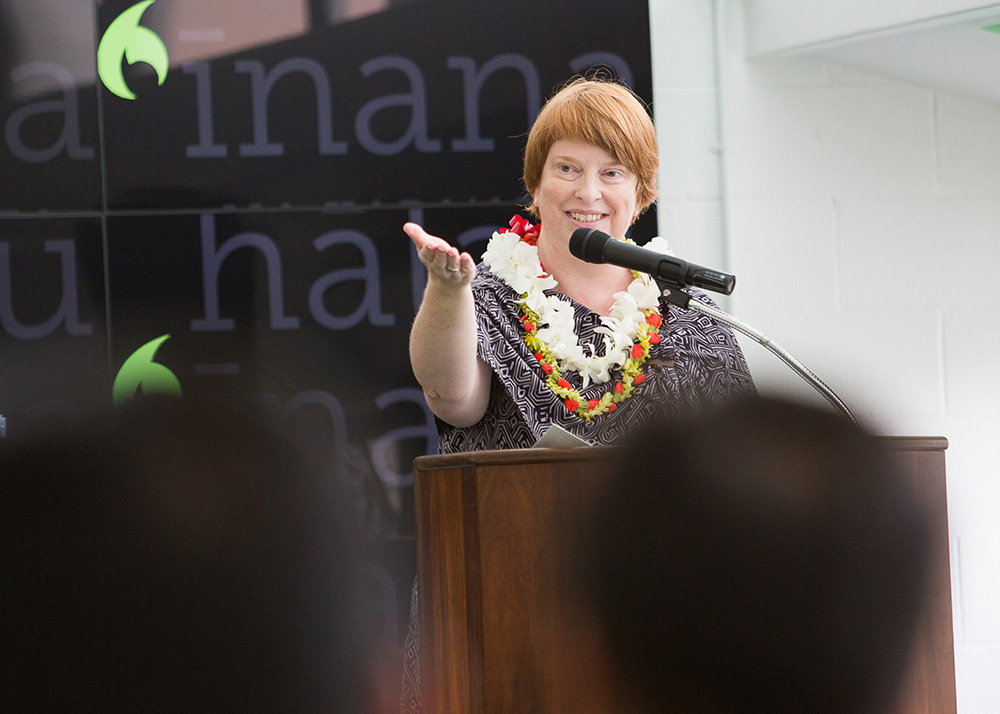Kuleana is a uniquely Hawaiian value and practice which embodies responsibility to self, community, and the ‘aina’ (land). At Chaminade University, a federally designated Native Hawaiian serving university in Hawai‘i with a two million-square-mile Pacific island catchment area, kuleana is part of the institution’s DNA.
It’s with this spirit that 21 undergraduate students at Chaminade University on the island of Oahu, 92 percent of whom were Native Hawaiian, undertook a month-long summer immersion experience in the field of data science.

Helen Turner, Chaminade’s Vice President for Strategy and Innovation, has a 20-year history of working with the Native Hawaiian and Pacific Islander communities through research, education, and outreach programs. The university’s recent push into the field of data science (starting Hawai‘i’s first Bachelor of Science program in this area as well as associated professional development qualifications) is the latest STEM (science, technology, engineering, and mathematics) initiative led by Turner.
“For us, data science in the Pacific is about empowerment,” Turner says. “Our fundamental regional challenges in healthcare, sustainability, equity, and social justice are at the heart of data problems, and training a data workforce in Hawai‘i will provide new capacity for stakeholders from grassroots organizations to agencies and businesses — that’s our vision.”
Chaminade, TACC, and Georgia Tech joined forces to launch a new project called SPICE (Supporting Pacific Indigenous Computing Excellence), whose goal is to teach data science skills and broaden participation, equity, and representation in STEM. The program is supported by the National Science Foundation (NSF).
Data Science as a route to Social Good
Traditional academic education doesn’t always include a way for how knowledge can be used.
“Most people have a passion, most people care about something significant, something that they have a personal connection to,” says Kelly Gaither, Director of Health Analytics at TACC and Associate Professor in Women’s Health at the Dell Medical School. “When you have a personal connection, it’s like a glue. It allows other concepts that you need to stick. In the absence of that glue, students may not realize they’d be happy working in computer science or data science because of the way it’s taught and presented to them.”
During the summer immersion program, each student chose a problem of their choice — something they really care about that affects their community, such as health, homelessness, the environment, and sustainable energy.
Read the rest of the story by Faith Singer-Villalobos, Texas Advanced Computing Center, here.





























































